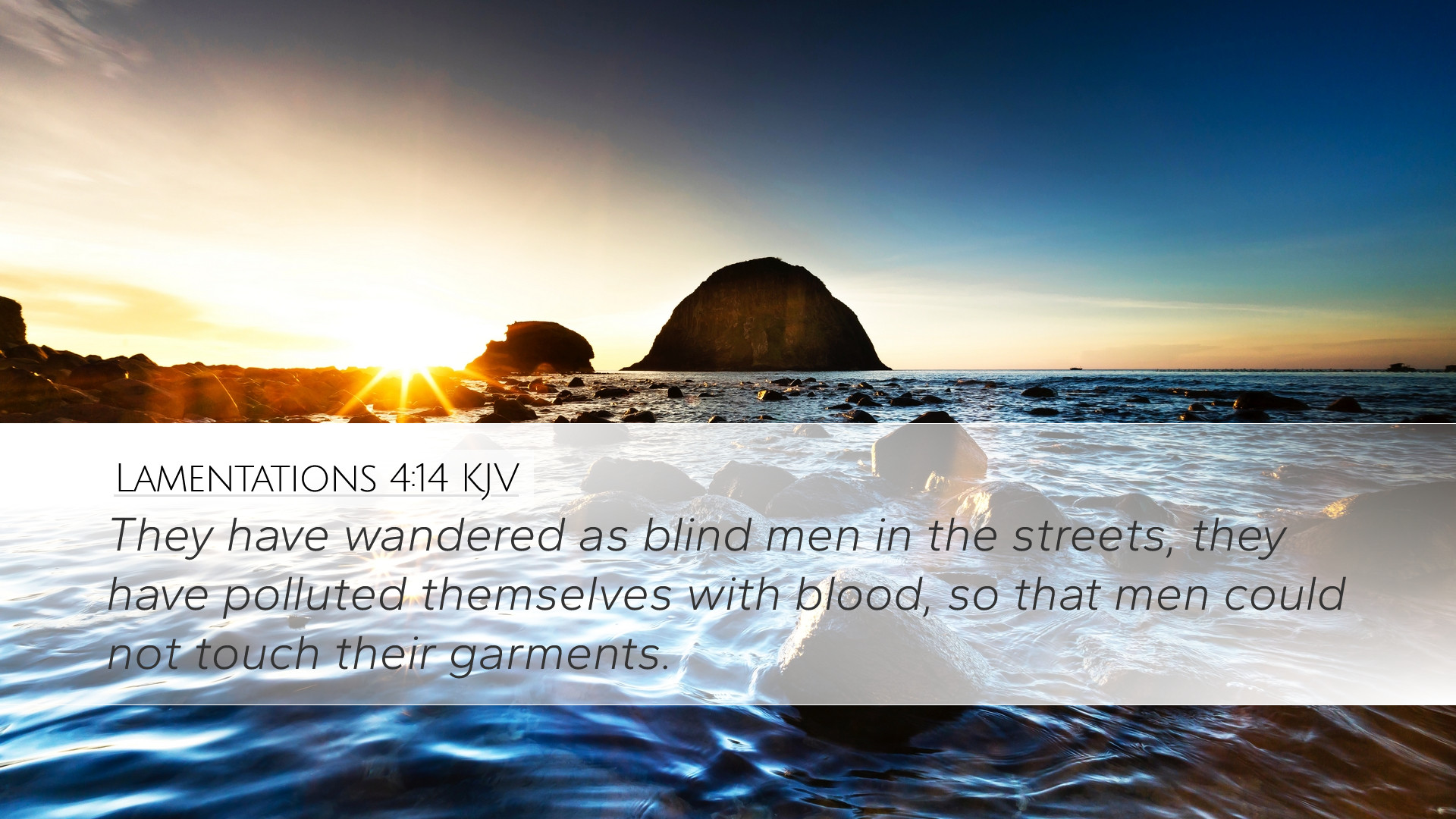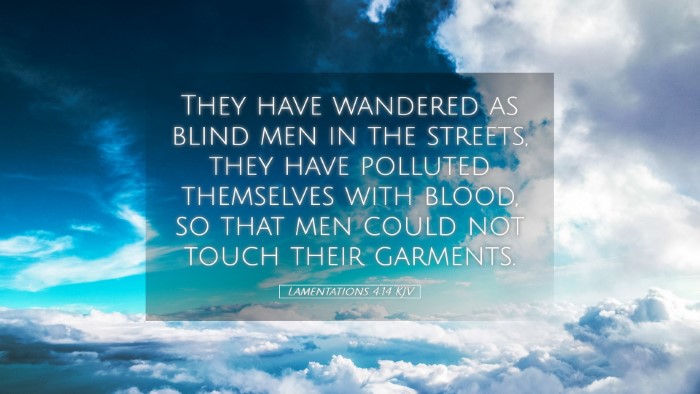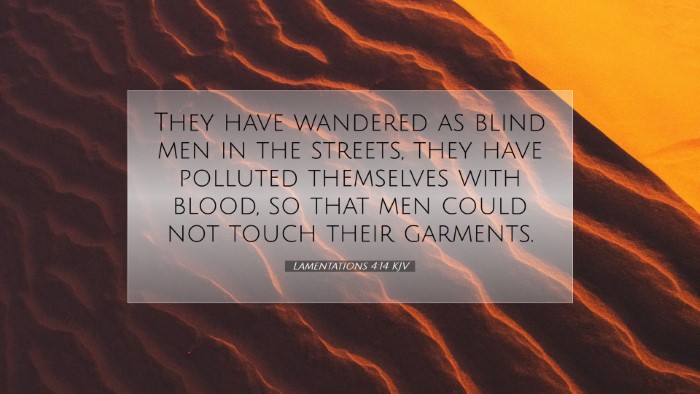Old Testament
Genesis Exodus Leviticus Numbers Deuteronomy Joshua Judges Ruth 1 Samuel 2 Samuel 1 Kings 2 Kings 1 Chronicles 2 Chronicles Ezra Nehemiah Esther Job Psalms Proverbs Ecclesiastes Song of Solomon Isaiah Jeremiah Lamentations Ezekiel Daniel Hosea Joel Amos Obadiah Jonah Micah Nahum Habakkuk Zephaniah Haggai Zechariah MalachiVerse
Lamentations 4:1 Lamentations 4:2 Lamentations 4:3 Lamentations 4:4 Lamentations 4:5 Lamentations 4:6 Lamentations 4:7 Lamentations 4:8 Lamentations 4:9 Lamentations 4:10 Lamentations 4:11 Lamentations 4:12 Lamentations 4:13 Lamentations 4:14 Lamentations 4:15 Lamentations 4:16 Lamentations 4:17 Lamentations 4:18 Lamentations 4:19 Lamentations 4:20 Lamentations 4:21 Lamentations 4:22

